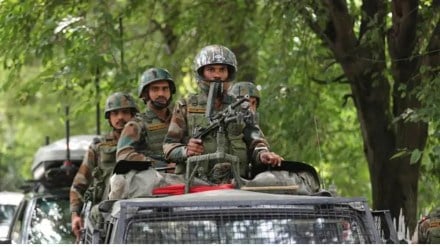As the use of drones becomes a cornerstone of modern warfare, securing these unmanned aerial vehicles (UAVs) from cyber threats has emerged as a critical priority for defence forces worldwide. The Indian Army, recognizing the vulnerabilities of drones in its inventory, is now in talks with an Indian company, ZUPPA Geo Navigation Technologies Pvt Ltd. (ZUPPA), to integrate cutting-edge technology designed to protect these assets from cyberattacks. This technology, named Suraksha, marks India’s first indigenous solution to counter the growing threat of cyber intrusion in the military drone domain.
Indian Army Embraces Indigenous Cyber Defence for Drones
The Indian Army has increasingly turned to drones for surveillance, reconnaissance, and even combat roles, enhancing operational efficiency and reducing the risks to human soldiers. However, many of the drones in its inventory, especially those sourced from open-source platforms, have components that pose potential cybersecurity risks. Several of these components, including autopilots and control systems, trace back to suppliers in China, which could harbour vulnerabilities that might allow malicious actors to hijack or manipulate drone operations.
To address this critical gap in drone security, the Indian Army is in talks with ZUPPA to deploy its Suraksha Edge Monitoring Device (EMD), a sophisticated cybersecurity solution specifically designed to protect drones from malicious attacks. ZUPPA, a homegrown technology firm established in 2008, has positioned itself as India’s only deep-tech cyber-physical drone stack solution provider, with a focus on designing and manufacturing 100 percent indigenous drones.
How ZUPPA Suraksha Secures Drones
The Suraksha EMD is engineered to monitor and secure communication channels between drones and their Ground Control Stations (GCS). In the event of a hacking attempt, such as a hacker attempting to take control of the drone through a rogue GCS, Suraksha instantly detects the anomaly, alerts the operator, and blocks the attacker. Simultaneously, it triggers a “Return to Home” command, ensuring the drone safely returns to its starting point. This automatic fail-safe mechanism prioritizes the drone’s integrity and minimizes the risk of it being hijacked or used for hostile purposes.
Unlike other systems that may block data leakage or attempt to secure all data transfers, Suraksha focuses solely on preventing unauthorized control commands, making it a highly specialized tool in the fight against cyber threats targeting drones. As cyber threats evolve, ZUPPA plans to introduce newer versions of its EMD, continuously improving the technology to stay ahead of potential vulnerabilities.
Strategic Importance in Current Global Conflicts
The ongoing Russia-Ukraine conflict and the Israel-Hamas situation in West Asia have underscored the tactical value of unmanned aerial systems. Combat drones, or Unmanned Combat Aerial Vehicles (UCAVs), are now widely used to carry bombs, missiles, and other munitions, often operating autonomously or under the direct control of soldiers. These drones offer a standoff capability, allowing military forces to strike with precision while keeping personnel out of harm’s way.
In future conflicts, drones could become the primary force multipliers, executing missions with greater speed, accuracy, and fewer casualties compared to traditional infantry. The growing reliance on drones also introduces significant risks, as the vulnerability of these unmanned systems to cyberattacks could undermine their effectiveness. For instance, a hijacked drone could be used to conduct surveillance, deliver explosives, or disrupt military operations.
ZUPPA’s Role in Strengthening India’s Defence Capabilities
Founded by father-son duo Sai Pattabiram and Venkatesh Sai, ZUPPA is India’s pioneering deep-tech drone manufacturer, offering end-to-end control over the design and delivery of its UAV products. As the only company in India with a complete in-house drone solution, ZUPPA not only manufactures drones but also develops the critical cybersecurity technologies to protect them.
The company’s drones, including secure micro drones and autopilots, are already in use by the Indian Army for surveillance and reconnaissance operations. By incorporating Suraksha into its drones, ZUPPA is enabling the Indian military to reduce its dependence on foreign drone technology and, more importantly, to secure its UAV fleet from cyber threats.
ZUPPA’s approach to developing indigenous technology reflects India’s push for self-reliance in defence, in line with the Atmanirbhar Bharat initiative.
The Future of Drone Warfare and Cybersecurity
As drones continue to evolve in terms of autonomy and capabilities, cybersecurity will remain a top priority. The rise of drone swarms, loitering munitions, and autonomous UCAVs means that defence forces worldwide must adapt rapidly to the growing cyber threats that accompany these technologies.
